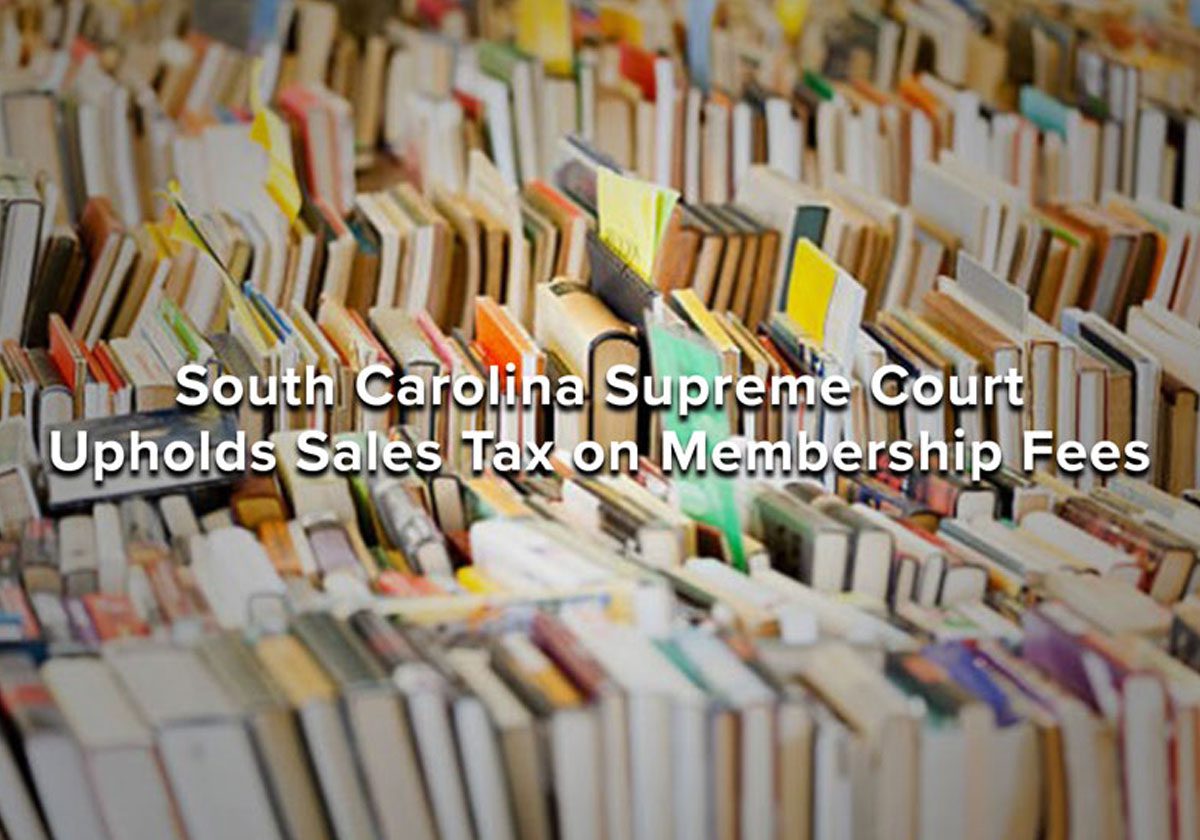In Books-A-Million, Inc. v. South Carolina Department of Revenue, the South Carolina Supreme Court, in a 3-2 decision, upheld the sales tax on membership fees charged by the book retailer. The Court affirmed the Department of Revenue’s assessment on book-club membership fees, because they represented gross proceeds from sales of tangible personal property.
Despite the Court majority recognizing the intangible nature of the membership itself, they arrived at their conclusion after carefully interpreting distinct language in the tax statute which they believed inextricably linked the intangible membership to sales of tangible personal property, and includable in “gross proceeds” subject to sales tax.
Unlike many states that use a term such as “sales price” to establish which amounts received are subject to sales tax, South Carolina sales tax applies to the “gross proceeds of sales” of tangible personal property. The law defines gross proceeds to include, the “value proceeding or accruing” from the sale of tangible personal property. The Court interpreted this language using the Merriam-Webster definition of “proceed”[1] and determined that the membership was, in fact, part of the value derived from the sale of tangible personal property, noting the following:
- The retailer only sold taxable items (books and merchandise) normally subject to sales tax.
- The only benefits of the membership were retail discounts and free shipping on online purchases.
- The value of the membership was discounts that would otherwise be included in the tax base.
These points were used to differentiate Books-A-Million membership from other membership programs such as warehouse stores, golf clubs, and similar establishments, whose membership is conditional to use, or who typically offer a variety of benefits with membership, and not solely for access to discounts.
On dissent, the minority pointed out that one thing cannot proceed from another which has not yet occurred; the membership fee cannot be derived from a future transaction, and that the statute was stretched to include a transaction that “does not fall within the grip of the tax.” The majority’s response was that the timing of the transactions is incidental, and that it is the relationship of the two transactions that must be examined.
It was also pointed out that club stores such as Costco and Sam’s Club offer merchandise at a discount, but do not likely charge sales tax on their membership fees, and that the majority’s interpretation of the statute would undoubtedly capture club-store fees as part of the tax base, resulting in disparate treatment for Books-A-Million. The majority declined to comment on this allegation as the issue was not before the Court.
While the dissent points out that the membership is an intangible and should not be taxed based on the strict read of the statute, the majority points out that not taxing the membership fee would potentially lead to havoc allowing for a “90% or 99% discount as a benefit of membership. This is unquestionably tax avoidance and is not legally distinguishable from lesser discounts as present here.”
ZHF Observation
While both the majority and dissent make sound arguments, in the end, the majority’s decision stands that Books-A-Million’s membership fees are subject to South Carolina sales tax. It would be interesting to understand how the majority would have addressed the situation if a customer paid for the membership fee but never bought a book.
If you would like to discuss Books-A-Million or any other state and local tax issue, please contact Jason Walker or any other ZHF professional.
[1] Merriam-Webster defines “Proceed” as “to come forth from a source.”


